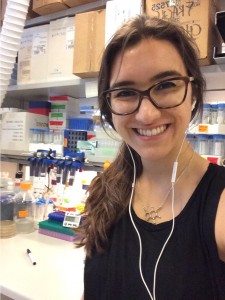
"I also wish that I had taken greater advantage of office hours when struggling with new intellectual paradigms. The strategies of academic success centers can be too general for grasping the nuances of different disciplines, and you need an expert's advice for your field. Too often, students use office hours to clarify and demonstrate what they already know, rather than listening to grasp the professor's point of view. The latter results in a better understanding of the subject, while the former results in a performative stalemate that perpetuates misunderstanding. "
GISELLA
 “I wish I were more assertive in going to office hours to ask anything I was unsure about. In Math there are also a lot of things they assume you know so if you don’t make the effort to stay back and point out what you missed, you’ll never learn.
I wish I carefully looked over the program requirements for my degree and spoke to my registrar because then I would have been able to plan for my courses for the upcoming year. Going to the registrar and checking your program requirements ahead of time is so important!"
Other than the great advice, Victoria and Gisella remind us of the importance of reflecting on our previous class experiences. When you detect the things you did wrong, it sets you out to change that, and make it right. It’s a lot more useful than trying to implement a vague idea of just doing better as the new academic year begins. That being said, it is important to remember that no matter what your class experience, there is always going to be something you wish you had done a little differently! While reflecting, it’s important to not to be harsh, but rather to learn from things you did, or things you didn’t do, and try and demonstrate what you learned in your next set of courses. Hopefully this makes you think of one thing you could do differently in your course tomorrow, that’s an improvement from a course last year!
“I wish I were more assertive in going to office hours to ask anything I was unsure about. In Math there are also a lot of things they assume you know so if you don’t make the effort to stay back and point out what you missed, you’ll never learn.
I wish I carefully looked over the program requirements for my degree and spoke to my registrar because then I would have been able to plan for my courses for the upcoming year. Going to the registrar and checking your program requirements ahead of time is so important!"
Other than the great advice, Victoria and Gisella remind us of the importance of reflecting on our previous class experiences. When you detect the things you did wrong, it sets you out to change that, and make it right. It’s a lot more useful than trying to implement a vague idea of just doing better as the new academic year begins. That being said, it is important to remember that no matter what your class experience, there is always going to be something you wish you had done a little differently! While reflecting, it’s important to not to be harsh, but rather to learn from things you did, or things you didn’t do, and try and demonstrate what you learned in your next set of courses. Hopefully this makes you think of one thing you could do differently in your course tomorrow, that’s an improvement from a course last year!
0 comments on “Advice from 2 Third Years.”